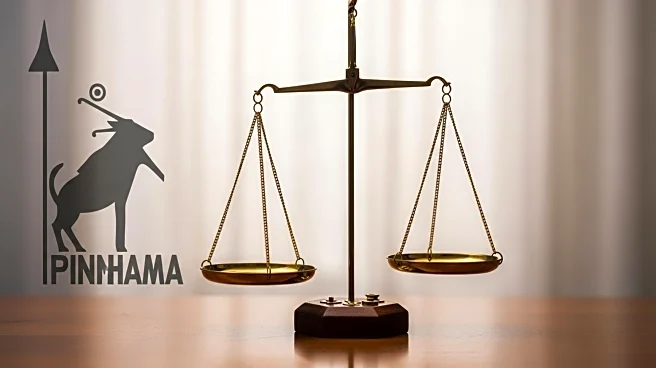What's Happening?
A federal judge has criticized the U.S. government for allegedly circumventing legal protections in the deportation of African migrants to Ghana. U.S. District Court Judge Tanya Chutkan has ordered the government to clarify its actions regarding the deportees, who are at risk of being sent back to their home countries where they may face persecution or torture. The deportations involve non-Ghanaian nationals, including individuals from Gambia and Nigeria, who were sent to Ghana under the Trump administration's third-country deportation agreements. Legal representatives argue that these deportees are being held in poor conditions in Ghana and face imminent return to their countries of origin, despite U.S. immigration judges' orders protecting them from such deportations. The Justice Department has acknowledged Ghana's potential violation of diplomatic assurances but claims limited influence over Ghana's actions.
Why It's Important?
This situation highlights significant legal and ethical concerns regarding U.S. immigration policies and their implementation. The deportations challenge the U.S.'s commitment to international human rights agreements, such as the United Nations Convention Against Torture. The case underscores the tension between national immigration enforcement and international human rights obligations. The outcome could impact U.S. diplomatic relations and influence future immigration policy, particularly concerning third-country agreements. The case also raises questions about the U.S. government's responsibility to ensure the safety of deportees once they are transferred to third countries.
What's Next?
The U.S. government is expected to respond to Judge Chutkan's order, detailing measures to prevent the deportees' return to their home countries. The case may prompt further legal challenges and scrutiny of the Trump administration's deportation policies. Potential diplomatic discussions with Ghana and other countries involved in similar agreements could arise, aiming to ensure compliance with international human rights standards. The situation may also lead to policy reviews or legislative actions to address the legal loopholes in current deportation practices.
Beyond the Headlines
The case brings to light broader issues of immigration policy and human rights, emphasizing the need for comprehensive reform. It raises ethical questions about the treatment of migrants and the responsibilities of nations to protect vulnerable individuals. The situation could influence public opinion and advocacy efforts, potentially leading to increased calls for policy changes and greater accountability in immigration enforcement.









